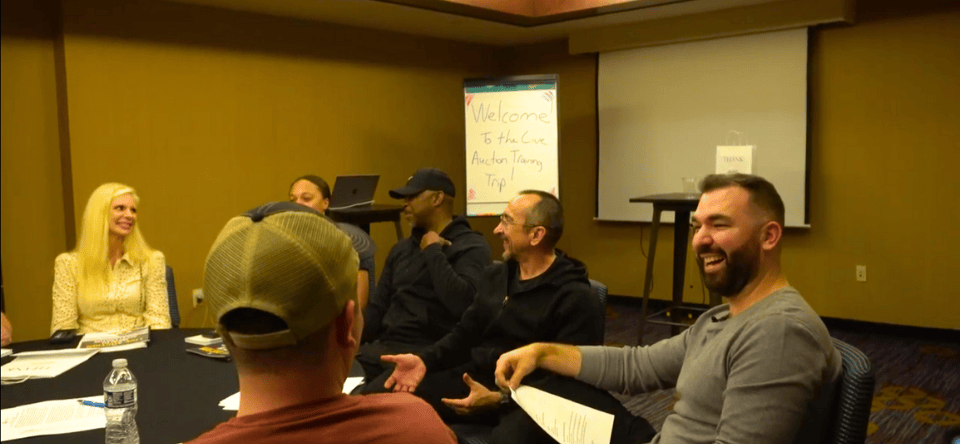Last Updated on September 9, 2025
Table of contents
When you buy property through a tax lien or tax deed sale, you might think all old debts disappear. That is not always true. Some liens won’t get wiped during these sales, and knowing the difference will keep you from buying a house with hidden debts. This article explains liens in simple terms and shows which liens stick and which disappear.
What is a lien?
A lien is a legal claim on property that secures repayment of a debt. If the debt is not paid, the lien holder can collect from the sale of the property. Counties sometimes sell tax lien certificates, which give an investor the right to collect unpaid taxes plus interest. They also conduct tax deed sales when the taxes remain unpaid, selling the property itself. Understanding these types of liens helps you see why some survive the sale.
Why won’t Liens get wiped away?
In a tax deed sale, most junior liens are erased. These include mortgages, second mortgages, home equity loans and private judgments. The debts still exist against the borrower, but the new owner of the property gets the title free from those private claims. This is one reason investors like tax sale properties.
Liens that won’t get wiped
Certain liens survive because they have priority under the law or because they are public debts. Here are the main types:
- Government liens and judgments – The Leon County Clerk of Court says that governmental liens and judgments survive a tax deed sale. These include unpaid federal or state income taxes, unemployment taxes and other government debts.
- Property tax liens – All property taxes share equal priority, so earlier or later tax bills remain on the property until paid.
- Nuisance abatement liens – Municipalities clean up overgrown lots or remove trash and then charge the cost to the property. These charges have the same priority as property taxes.
- Special assessments – When local governments finance public improvements such as sidewalks, road paving or sewer lines, they may levy special assessments. The Leon County Clerk notes that unpaid installments survive the tax deed sale.
- Demolition liens – If the city demolishes unsafe structures, the cost becomes a lien that is treated like a special assessment and continues to attach to the property.
- Other municipal liens – Unpaid water, sewer, code enforcement or similar municipal charges often become public liens. Because they are governmental, they frequently stay with the property.
Summary table of common liens and whether they survive
| Lien type | Does it survive? | Notes |
| Government tax liens | Yes | Government debts (IRS, state taxes and judgments) remain |
| Property tax liens | Yes | All property tax bills must be paid |
| Nuisance abatement liens | Yes | Private loans are erased; debt still follows the borrower |
| Special assessment installments | Yes | Unpaid installments for public improvements survive |
| Demolition liens | Yes | Treated like special assessments |
| Mortgages, home equity loans | No | Private loans are erased; debt still follows borrower |
| Private judgment liens | No | Court judgments for credit cards or other debts are wiped |
How to check for liens before bidding
Because some liens won’t get wiped, you need to check the property carefully:
- Review county records
Most counties provide tax deed files and ownership reports. The Leon County Clerk warns that these reports are not substitutes for a full title search, so use them as a starting point.
- Search official records
Check deeds, mortgages, judgments, special assessments and code violations in the official records. This helps you spot surviving public liens.
- Order a title search
Hire a title company or attorney to perform a professional search. They will identify hidden liens, such as federal tax liens or unrecorded assessments.
- Check with local departments
Contact code enforcement, utilities and public works departments to ask about unpaid bills or demolition charges.
Frequently asked questions
A tax lien certificate gives an investor the right to collect unpaid taxes plus interest. If the owner pays, the investor receives their money back with interest. A tax deed transfers ownership when the taxes remain unpaid for a specified time, but some liens won’t get wiped.
Yes. Mortgages and other private loans are junior to property tax liens and are removed from the property at the sale. The borrower still owes the debt, but the new owner does not.
No. The county clerk states that governmental liens and judgments survive a tax deed sale. Federal, state and local tax liens must be paid by the new owner or resolved through negotiation.
Final thoughts
Tax lien and tax deed investing can be profitable, but you must know which liens won’t get wiped out. Government tax liens, property taxes, nuisance abatement charges, special assessments and demolition liens stay with the property even after a tax sale. Mortgages and private loans disappear from the title, but the borrower still owes the lender. Always research public records, order a title search and verify municipal charges before bidding. With careful research, you can avoid surprises and invest confidently.









